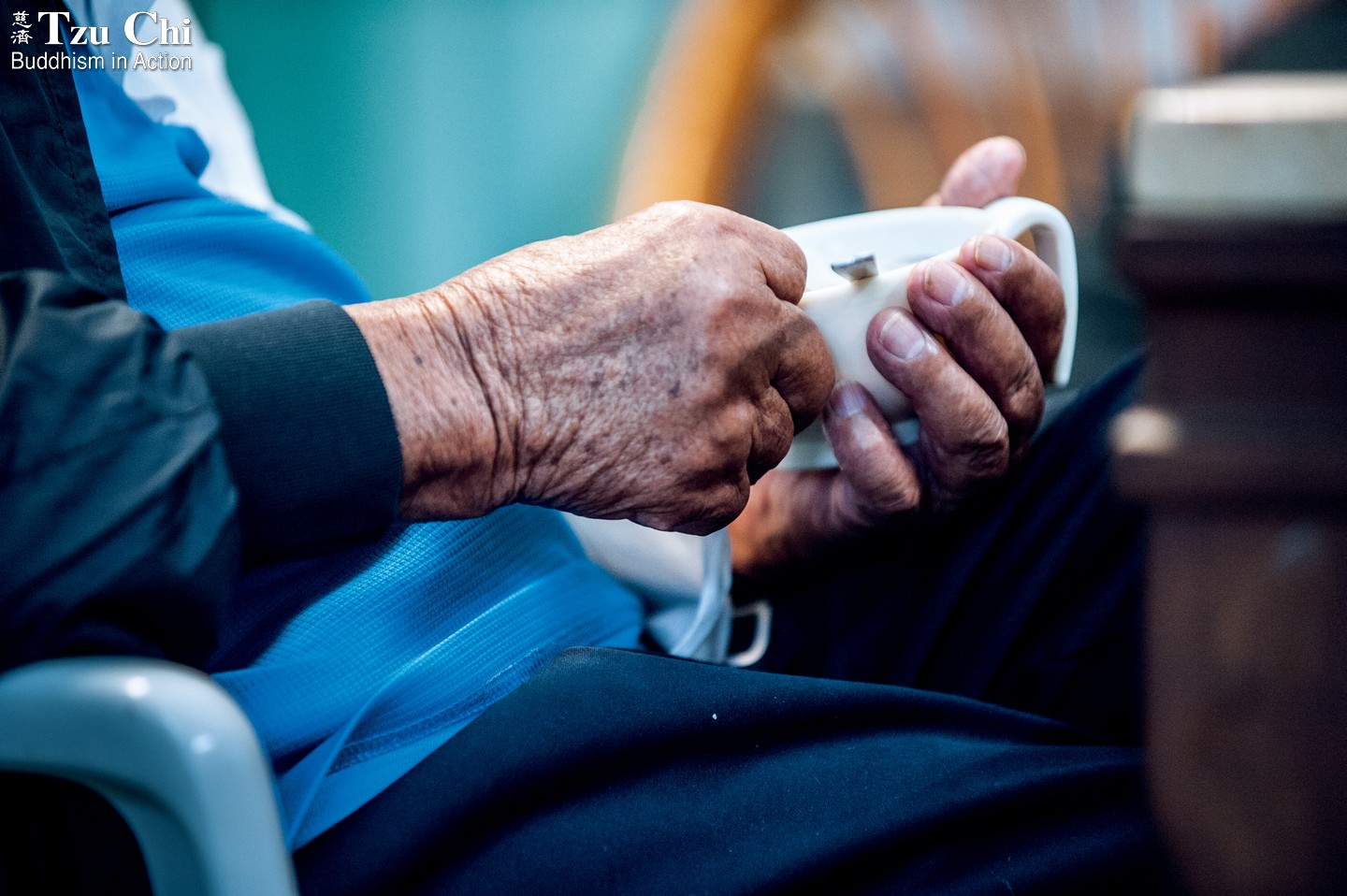By Liao Wei-qing
Translated by Wu Hsiao-ting
Photo by Huang Xiao-zhe
Do the seniors in your family tire easily, move slowly, and feel disinclined to leave the house? Are they losing weight? Find out ways to prevent, delay, or reverse frailty in older people.

Li, an 82-year-old woman with a chronic illness, fell the other day and sustained a bone fracture. After surgery, her mobility was severely reduced, so much so that she became unable to take care of her daily needs and had to check into a nursing home. Even after her wounds had healed, she continued to tire easily and have a poor appetite. She nodded off a lot during the day, and did not feel like getting out of her bed.
In response, her family decided to take her to the geriatric outpatient clinic at Taipei Tzu Chi Hospital for an examination. It was there that Dr. Lin Chun-yu (林純聿) diagnosed her with frailty combined with geriatric depression. The physician adjusted the medicine Li was taking, taught her family how to help her exercise, and pointed out other things for them to pay attention to. Three months later, Li was able to walk with the help of a walker. Three months after that, she had recovered her stamina and was able to get around with just a four-footed cane.
As the population ages, geriatric care is becoming more and more important and in demand. Dr. Lin pointed out that these days it is common that seniors are succumbing to physical or mental conditions and becoming less capable of taking care of themselves. This can happen when a senior has had a fall, has been struck with an illness, or has experienced the passing of a relative or friend. According to Lin, the prevalence of pre-frailty among people in Taiwan aged 65 or older is about 40 percent. Frail people are at an increased risk of adverse health outcomes, including hospitalization, institutionalization, and premature mortality. It’s a growing issue in society that demands attention.
Frailty test
Frailty is generally believed to be a natural consequence of aging, so people tend to ignore it when they notice older people in their family getting weaker. However, fighting the tendency to accept frailty as part and parcel of getting old is essential. The reason is that early identification and intervention for those at risk can prevent or delay the negative outcomes of frailty.
Dr. Lin suggested that people 70 and older, or those at least 65 with an unintentional loss of five percent or more of their weight, can take the following test to find out if they are at risk of frailty:
- Slowness: defined as taking more than 7.5 seconds to walk six meters (20 feet).
- Weakness: defined as a grip-strength measurement of less than 26 kilograms (57 pounds) for men and less than 18 kilograms (35 pounds) for women.
- Weight loss: defined as an unintentional weight loss of more than 4.5 kilograms (10 pounds) compared with the year before.
- Exhaustion: defined as feeling that everything you did was an effort or that you could not get going, in at least three out of the last seven days.
- Low physical activity: defined as burning less than 383 calories per week for men, or 270 calories per week for women.
The presence of one or two of these factors indicates pre-frailty, and a change of lifestyle is recommended. Dr. Lin suggests to first adjust your diet. If you don’t have kidney disease, increase your protein intake. The recommended amount to consume per day is 1 to 1.5 grams of protein per kilogram of body weight. Also, make exercise a habit: Practice raising your legs and hips, walking, standing, etc., to increase your muscle strength and prevent muscle loss. It’s also advisable to have regular physical checkups.
The presence of three or more of the five assessment factors indicates frailty, and medical intervention is recommended. At this stage, Dr. Lin recommends visiting a geriatric outpatient clinic for an overall appraisal. Is there improper use of medicine? Are there other risk factors involved? Such assessments can help medical workers formulate a care plan.
Take Li, the elderly woman mentioned at the beginning of this article, as an example. Dr. Lin learned that she was taking painkillers and two kinds of sleep-inducing pills in addition to medications for her chronic condition. To increase the patient’s willingness to move around more during the day, the doctor reduced her doses of sleep-inducing medication. And because Li displayed symptoms of depression after she was injured, Dr. Lin prescribed anti-depression drugs for her. The physician also recommended an increased intake of protein and demonstrated to her family the kind of exercises she could do to increase her muscle strength.
“Walking at a slow pace doesn’t help to delay frailty,” said Dr. Lin. “People should take a more proactive approach to aging. Change your lifestyle, adopt a balanced diet, and develop a habit of exercise to prevent or delay the onset of frailty.” She further reminded people not to think of frailty as a natural outcome of aging and to have regular checkups to assess their physical condition. With these simple precautions, a healthy, happy old age is within everyone’s reach.



